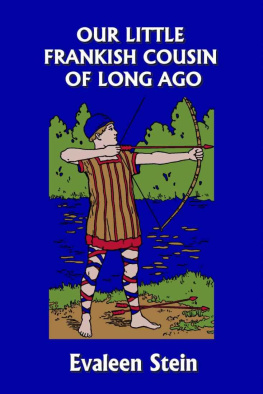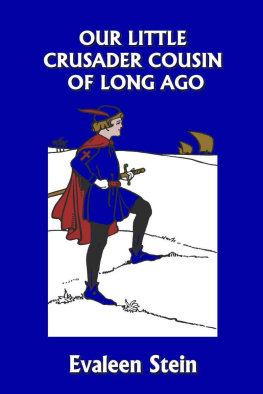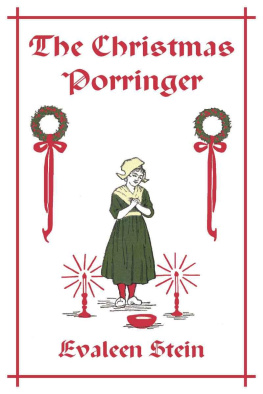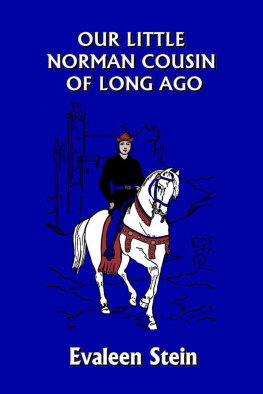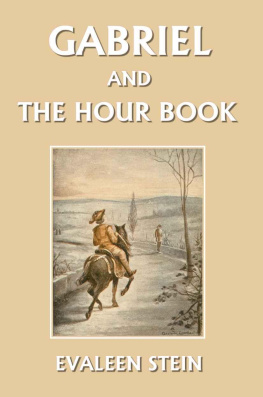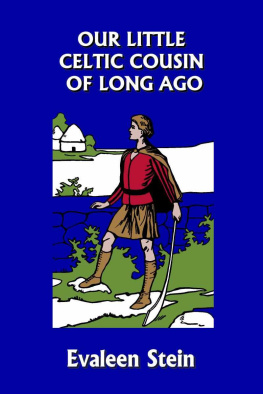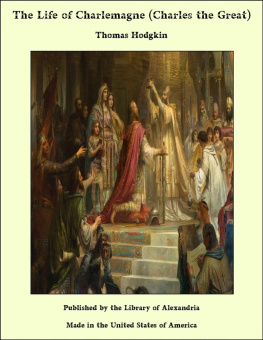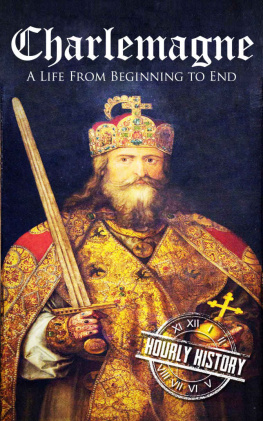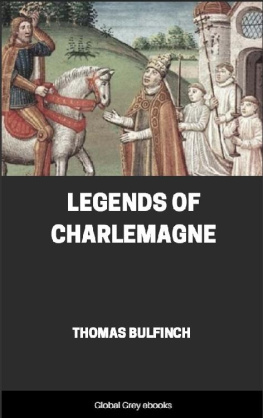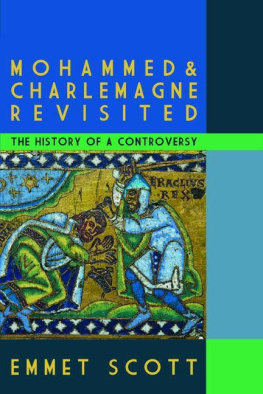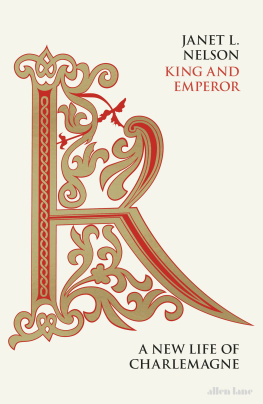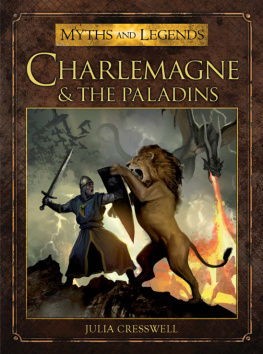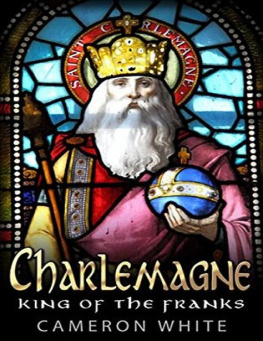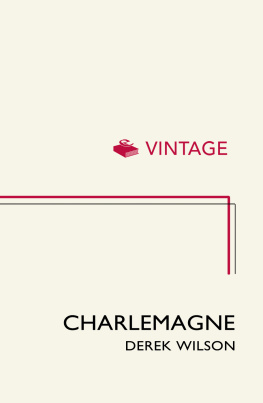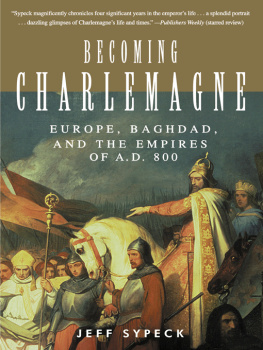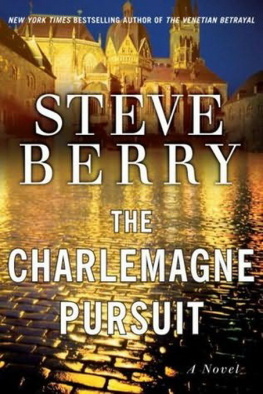Our Little Frankish Cousin of Long Ago
by
Evaleen Stein
Yesterday's Classics
Chapel Hill, North Carolina
Cover and Arrangement 2010 Yesterday's Classics, LLC
All rights reserved. No part of this book may be reproduced or retransmitted in any form or by any means without the written permission of the publisher.
This edition, first published in 2010 by Yesterday's Classics, an imprint of Yesterday's Classics, LLC, is an unabridged republication of the work originally published by The Page Company in 1917. This title is available in a print edition (ISBN 978-1-59915-244-8).
Yesterday's Classics, LLC
PO Box 3418
Chapel Hill, NC 27515
Yesterday's Classics
Yesterday's Classics republishes classic books for children from the golden age of children's literature, the era from 1880 to 1920. Many of our titles are offered in high-quality paperback editions, with text cast in modern easy-to-read type for today's readers. The illustrations from the original volumes are included except in those few cases where the quality of the original images is too low to make their reproduction feasible. Unless specified otherwise, color illustrations in the original volumes are rendered in black and white in our print editions.
Preface
The Frankish ruler, Charlemagne, was one of the greatest monarchs that ever lived. Great not merely because he was a victorious warrior and the kingdom he ruled was enormous, but rather because living as he did in a time when many of his people were lawless and ignorant, he saw clearly the worth of law and wisdom. He did all in his power to govern justly and to teach his people in all that best knowledge without which no nation can become truly civilized.
The world has never forgotten his great deeds, and deep in its heart it still cherishes him as one of its most honored heroes.
Many are the songs and legends that cluster about his name, and some day I hope you will read these, for I am sure you will enjoy them. Meantime, perhaps you may be interested in learning something of the home life of this hero, so let me introduce Our Little Frankish Cousin of Long Ago, for he spent quite a while as page in the royal palace and so ought to be able to give you some idea of what folks did there. At least he can show you what Frankish boys did,and, I do hope you will like him!
E VALEEN S TEIN
Contents
CHAPTER I
Rainolf and the Palace Pages
O NE summer afternoon, ever and ever and ever so long ago, along a crooked street in the old town of Aachen a boy was walking slowly. He held in his hands a half unrolled scroll of parchment covered with queer squares and circles and quantities of stars, and at these he was peering with an intent curiosity. Indeed, he was so absorbed in trying to make out the figures on the parchment that he forgot to notice where he was going; and presently tripping over a large stone projecting from the narrow ill-paved street, down he tumbled, sprawling plump into the midst of a family of little pigs that had been following their mother just ahead of him.
Instantly there was a tremendous squealing as the frightened little beasts scurried off in all directions, and mingling with their squeals rose a chorus of merry shouts of laughter from a group of boys coming from the opposite direction.
"Ho! Ho! Rainolf!" they cried. "What were you trying to do? Catch a little pig for the palace cooks?"
Meantime Rainolf, having scrambled to his feet, began ruefully to brush the dust from his tunic of white linen and his legs wrapped in strips of the same material cross-gartered with knitted bands of blue wool. One of the boys good-naturedly picked up his round blue cap, while another handed him the roll of parchment which had been the cause of his trouble. As the boy caught a glimpse of the tracings on the scroll, "Rainolf," he said, "I'll wager you have been to see Master Leobard the astrologer!"
"Yes," replied Rainolf, "he was a friend of my father, and mother said for me to go to see him when I came to Aachen. I hunted him up to-day, and he was very kind and made my horoscope for a present."
Here the boys gathered around Rainolf again as he unrolled his parchment, and they all looked it over trying to puzzle out its meaning. Now, a horoscope was a chart showing the position of the stars in the sky at the hour of a baby's birth; and from these the astrologer who made it, and who was supposed to know much about the stars and a good deal of magic besides, declared he could foretell the child's future. People who could afford it in those days liked to have these horoscopes made for their children; but if one did not happen to have it done when a baby it answered just as well later on to furnish the astrologer with the right dates. This was the way Master Leobard had made the one for Rainolf, who had been born twelve years before, in a castle some distance from Aachen whither he had lately been sent by his widowed mother so that he might be educated in the court of the great King Charlemagne who ruled the land.
As now the boys looked at the parchment, "Well," said one of them, "it's no use for us to try to make it out. What did Master Leobard say? Is your fortune good?"
"Yes, Aymon," answered Rainolf, "I think it's fairly good,though he did say I would get some hard knocks now and then."
"So," laughed one of the boys, "I suppose you tumbled down just now because your stars said you had to!"
Rainolf smiled as he added, "At any rate, if I do get some knocks, he said I would be a good fighter and always conquer my enemies." And he drew himself up proudly.
"You are a good fighter now," said Aymon, his close friend, as he looked admiringly at Rainolf's straight figure and fearless face with its blue eyes and frame of flaxen hair.
"But," went on Rainolf, "he said there was something else I would like much better than fighting and that I would make a success of it, and that I would see something of the world." Just here the horoscope was cut short, as "Look out!" cried one of the boys, and they all hastened to flatten themselves against the wall of an old brown house in front of which they happened to be standing. For a cart was coming down the street, which was so narrow that anybody walking there had to get out of the way or else squeeze up against some of the brown-beamed wooden houses or dark little shops on either side.
Meantime the cart came trundling by. It was heavy and rudely built, its two wheels made from solid blocks of wood which had been hewn with an ax till they were tolerably round. The cart was drawn by a big white ox wearing a clumsy wooden collar; and his patient eyes scarcely blinked nor did he turn his head as the heavy wheels bumped and creaked over the uneven stones of the street. Beside the cart walked a bare-headed peasant with red hair and beard and wearing a tunic of coarse gray homespun, his legs wrapped in bands of linen criss-crossed around them and on his feet shoes of heavy leather.
"Good-day," said Rainolf as the man passed. But the peasant only turned his head and stared.
"Where are you going?" pursued another boy undaunted by his silence.
At this, "To the King's palace," muttered the peasant as he prodded the ox with a long goad he held in his hand.
The ox started, the cart gave a jerk, and "Squawk! Squawk!" came from a couple of geese within as with feet tied together they helplessly flopped against some bags of meal piled in front of them.
"Oh," said Aymon, standing on tiptoe trying to look into the cart, "never mind, Rainolf, that you didn't catch those little pigs! All these things are going to the palace kitchen!"

